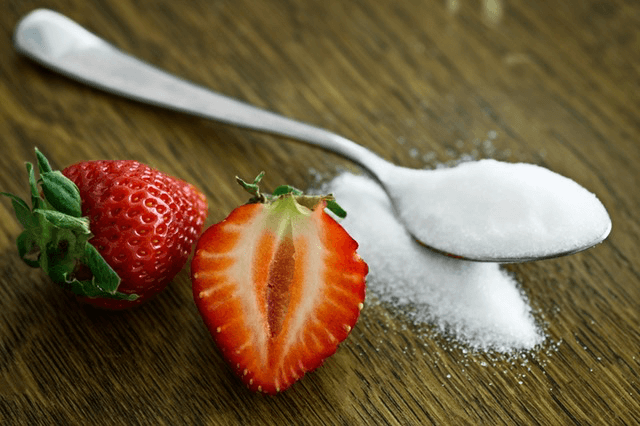The Danger with Sugar that no-one is talking about
26 January 2017

If you have been anywhere near a TV screen, radio or social media recently you will know that negative impact of excessive sugar consumption on our health is very much in the spotlight.
There have been a number of headline grabbing stories where sugar has been targeted. You may be familiar with some of these:
- the forthcoming ‘sugar tax’ on sugary drinks
- the vast amounts of sugar included in many children’s breakfast cereals (even in the so-called ‘healthy’ options!)
- Public Health England’s ‘Sugar Smart’ app, raising awareness of the hidden sugars in our food as we shop
- calls to end the workplace ‘cake culture’
All this is positive and it’s great to see people taking the impact of sugar seriously.
Yet from our perspective there is one very important aspect that we are missing from the conversation.
We all know that too much sugar is bad for our teeth but a far less understood fact is that it is not just about how much sugar we eat… it’s also about how often and when we eat it.
The media and political focus is aimed at reducing the quantity of sugar in our diets. However, we also need to consider the frequency of our sugar intake.
Here is why…
Reduce the sugar attacks on your teeth
The bacteria in our mouths converts sugar into acid and it is that acid, rather than the sugar itself, that attacks the enamel that protects our teeth.
A sugar attack occurs every time we eat. When we eat our salivary glands are stimulated to produce saliva. It is this saliva that helps to break down the acids and re-strengthen our teeth.
We live in a snack obsessed world but eating between meals can have a negative impact on our oral health.
It takes a whole hour for our mouths to neutralise (get rid of all the acid produced) after eating or drinking – even a quick snack means that the process has to start all over again.
If you graze and snack all day, your teeth don’t get a break and you’re increasing the number of sugar attacks on your teeth. This causes your mouth to remain acidic for a much longer time, so increasing the damage to your precious tooth enamel.
Top Tip 1: Go with the (saliva) flow!
Resist the urge to have a biscuit at 10.30am and instead eat it at the end of your lunchtime meal. When we’ve eaten a meal, the saliva flow is already high and this helps to break down the acids that develop on your teeth.
Top Tip 2: Avoid evening snacking!
Some people tend to snack late into the evenings but snacking before bed is a disaster for your teeth. Saliva flow is at its lowest during the night so any acid produced takes a lot longer to neutralise, leaving the enamel on your teeth vulnerable to a sustained attack.
If you eat just before you go to bed and then brush your teeth, your mouth won’t have neutralised the acids yet. As a result, brushing your teeth will remove tiny particles of the enamel you are trying to protect.
If you want a sweet treat in the evening, make sure you eat it with your evening meal.
Top Tip 3: Snack healthy!
If you do need a snack between meals, it is much better to have low-sugar snacks that will produce less acid such as nuts, cheese and raw vegetables.
Making sure all our patients have a healthy, happy smile is important to Redmires Dental Care. Don’t forget to book your next healthy mouth check-up to receive more in-depth advice from our team.
